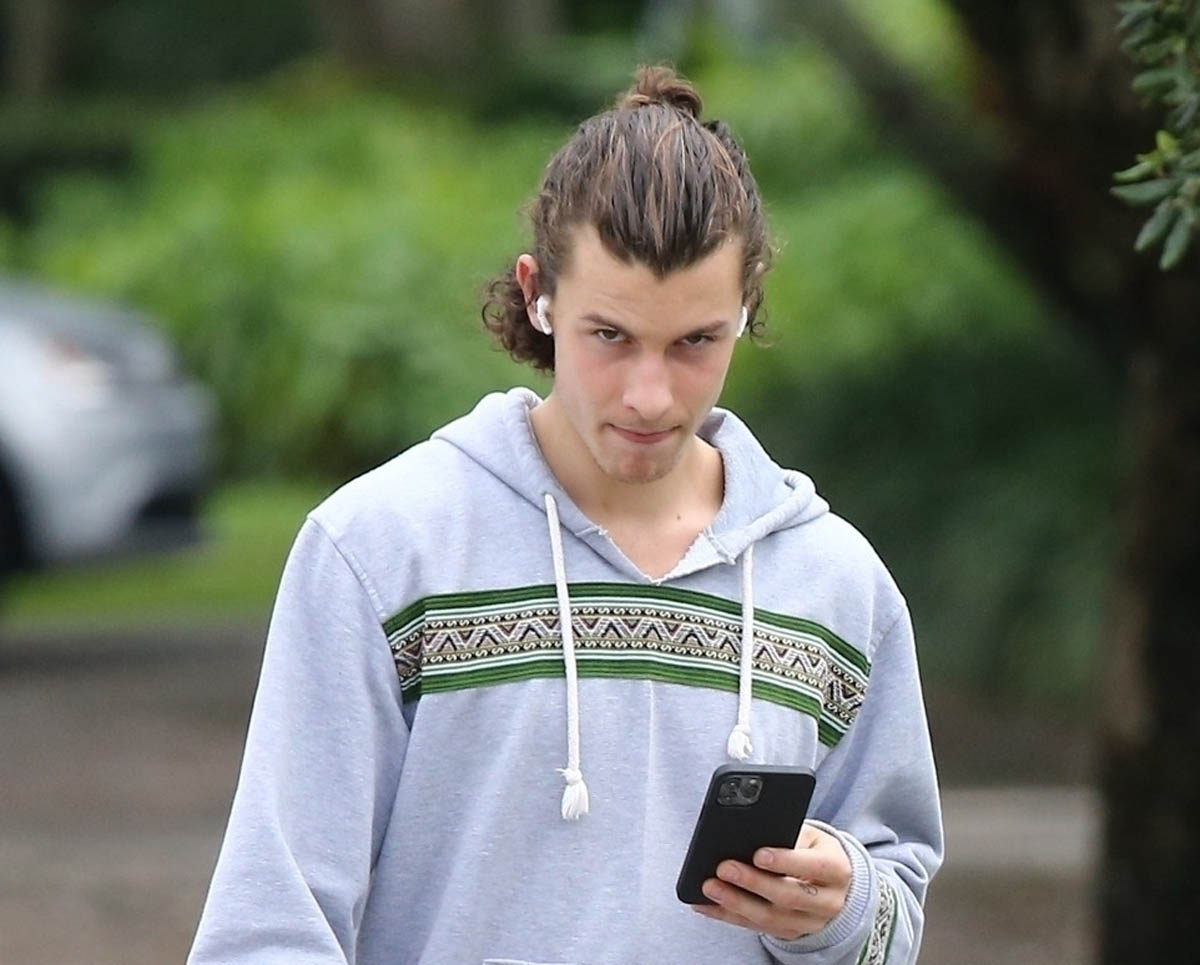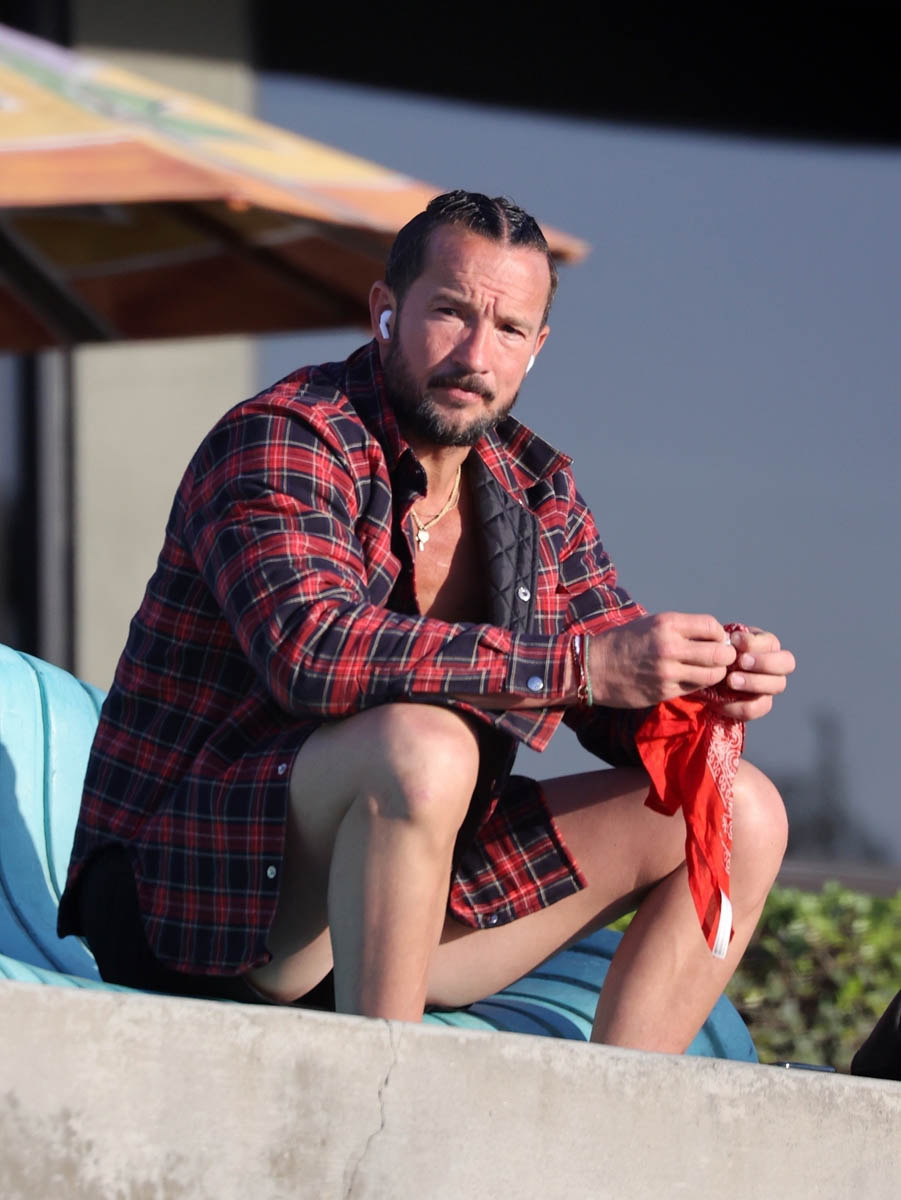Selena: The Series is The Abraham Show



“YOU’RE THE TREE.”
I laughed SO hard at this line. If you don’t know what I’m talking about yet because you’re still watching, I hope you enjoy it as much as I did. But damn if that line, ridiculous as it is, doesn’t tell you who the star of this show is.
This is NOT Selena: The Series. Selena is not the protagonist of her own story. This is a show about the Quintanilla family, and Selena is not even one of the main characters, y’all. And maybe if the show had been called “Selena y Los Dinos,” or been given a more honest title, I wouldn’t have been as disappointed. I guess the Netflix show blurb should have prepared me—apparently, her family is what made Selena a superstar. Her family was “the secret weapon.”
Well, I don’t know if any Selena fan will buy that. While I don’t deny that the management of Abraham Quintanilla and the song-writing of her brother A.B. contributed to Selena’s success, to say that the family was the secret weapon to her stardom is to dismiss the magic of Selena.
To me, the magic of Selena, was that She. Had. IT. My mom calls it having “ángel” (pronounced in Spanish, with a hard g), that there are some people who have this magic inside of them that just plain attracts tons of people. I guess its closest translation would be the word charisma. And I hate to be this person, but Christian Serratos, with what they’ve given her to do in this role, does not have ángel. There’s a moment in the series when a young girl selling lit up plastic white roses offers one to Selena after the show. The girl’s mother remarks that Selena is like the flower (“como la flor”, get it?!) and that this flower “se ilumina desde adentro, igual que tú”—meaning, she lights up from the inside. That she has this great light within. And yes, I think the real Selena was like that flower.
But the series never shows us this flor iluminada that brightens up everyone around her with her magic. In fact, there are so many times in the series when Selena is literally underlit/backlit or out of the spotlight that you would think she is incidental to the story. This made me so frustrated and officially gave way to my hate-watching—I am watching a show that promised me one star and is giving me another, and when you mess with audience expectations like that, you get yourself in trouble. And I got tired of hearing how amazing Selena was and not seeing it on the screen. I felt as though I was watching Gilmore Girls again and being told Rory is the most intelligent, amazing, witty person in all of the land, and I am not seeing it (sorry if I lost some of y’all with that Gilmore Girls reference). In this show, we are being told Selena is a star. But we are not being shown this star. At least not with much depth! Were I not the Selena scholar that I am (I’m half-joking here), I would not understand why anyone cares about a girl whose concerns, for most of the episodes, seem to be about her hair.
Selena could sing. Selena could dance. Selena was hella funny. Selena does not crack a joke until halfway through the third episode. And we definitely do not see the magnetism that she transmitted on the stage. I don’t know if it’s that Christian Serratos could not deliver, or if the Quintanillas were not interested in telling Selena’s story (maybe because the family felt left out in Gregory Nava’s interpretation?), but so many of Selena’s performances end up being the background for either of the Abrahams’ storylines. They really should have called it The Abraham Show.
Both father and son are at the center of this series. They have the most screen time and most substantial dialogue. These first 9 episodes (because a second part to this series is expected in 2021) are so much “the making” of Selena y Los Dinos by the two Abrahams. In many ways, this is Abraham Quintanilla’s American Dream story—how his perseverance, how his mantra of “never stop” regardless of what gets in the way, is what will make Selena a star. When he fires Chris from the band for being in a relationship with Selena in the last episode (there’s no need for a spoiler warning here, is there?), and he yells that Chris is “not going to destroy everything (Abraham has) worked for!” he clearly says and means “I” when it should have been “we”, because in his mind, the success of the band is HIS individual accomplishment. He is the star of the show.
With each episode, I kept thinking of another Netflix series about a Latinx superstar—Luis Miguel. And since he was mentioned in Selena: The Series twice, I think it’s more than fair game to make the comparison (apparently Suzette was a fan?). I can’t help but think how they both tell the stories of fathers who live out their frustrated music dreams through their children, and the children’s lives become all about work when perhaps they should have been worrying about school or play. They tell the stories of young people with great financial and other “make or break” responsibilities that weigh so heavy on their literal little shoulders. In Luis Miguel: La Serie, the father is depicted as a villain, a man who goes through unbelievable lengths to make his son (and therefore himself) a successful star. In Selena: The Series, the father also goes through great lengths to make his child a star, but the series tries to push a narrative that is more sympathetic. I write “tries” because the dialogue, narrative structure and performances are not selling me this story. And because I don’t know if one can be sympathetic to a father who makes his son dumpster dive for cans of peaches to make the stage lights HE has promised for a wedding, or one who makes his children pay for groceries with food stamps because he is too “proud” to do it himself. It’s also hard to celebrate a father who cannot let his children celebrate any of their accomplishments, but finds the way to pay off his own three mortgages. Let’s just say I grumbled the words “Pinche Abraham” too many times to count during my hate-watch.
Now let’s talk about the other Abraham, A.B. We get so much of an insight to his process as soon as he becomes the band’s lead songwriter. I personally find that interesting as a writer—how ideas originate, how they are workshopped and developed, and how they get rewritten until they really are done. But why not give as much insight to Selena’s own process or work? You know, since the show is named after her? Her work is mostly devoted to the fashion and beauty components of her performances, and while we know that this mattered to Selena and would go on to become a part of her business (she had her own line before all these other stars did!), we are shown so little of her work as a performer. And the little we are shown does not match up to Selena’s performances. In the series, we rarely see Selena practice singing her songs or trying out her dance moves, and when we do, the scenes are so short that we never get a real sense of Selena having a talent and ethic that will make her a star. When do we see an uninterrupted song practice or recording, one that doesn’t serve as the soundtrack to the story of someone else? When does the show highlight what her specific voice added to the recordings and performances? It is not just the beat, but the delivery that Selena gives that takes “Carcacha '' from the silly premise of a sh*tty car to a good cumbia around the dancefloor. When you listen to a song like “Carcacha” or “Como La Flor” and can remember her specific choreography, effortless as it seemed, by just listening to a lyric, you know her work is there, too. How can a song about the pitter-patter of someone’s heart come across as sweet instead of cheesy? Because Selena sang it and performed it the way she did, that’s why!
This show reduces Selena in so many ways--in terms of her physicality, charisma, performance, her talent, her ethic! It’s hard not to see this as intentional--as an attempt to rewrite Selena’s story to say, “See? We are really the ones who made that sh*t happen.”
Well if you have been online at all this weekend, however briefly, you know how the fans feel about this rewrite.
If Selena had been alive to tell her own story, like Luis Miguel did through his own series, how would she tell it? How would she tell the story of her childhood? How would she remember her father’s rules? How would she remember dropping out of school or not being able to fall in love in the open? Would she have any regrets about how she lived her young life? And while I am making comparisons, since I read Becoming Beyoncé in the midst of the pandemic, I must ask: would Selena have gone the way of Beyoncé and fired her father once she was strong enough as an artist and woman to do so?
One of the hate-watching jokes my husband and I had while watching the series this weekend was after someone said the line, “Where’s Selena?” in one of the earlier episodes. We kept saying the line every time the scenes would go to one of the Abrahams and even Suzette, instead of the title character. Was this a narrative choice? Or did this choice also have something to do with the casting?
When Madison Taylor Baez, who played Selena at eight years old, sang lead for “Southern Pearl,” I was IMPRESSED (someone sign that little girl for something!). I couldn’t say the same for Christian Serratos. But I think Serratos is operating from a great disadvantage. She might be a decent actress, but a singer/dancer she is not. Not when compared to Selena. The lip syncing was waaaaay off, and the jokes about the band’s lip syncing were less funny in light of this. Seeing her attempt to dance cumbia made my heart hurt. Seeing her attempt at recreating her chemistry with Pete Astudillo, a choreography that looked like two people who had just learned to make those steps for the first time, gave me major pena ajena (second-hand embarrassment). Feel free to check out the effortlessness of the originals onstage in Monterrey (!) back in 1992 if you don’t know what you were missing:
https://www.youtube.com/watch?v=rWbknuu2rtM
Serratos is playing someone who sang and danced her ass off--even when Selena y Los Dinos performed with playback. And she is playing her after someone else did the lip syncing and dancing so well, a performance which is still fresh in people’s minds (quick aside—if Selena had been a white singer, and JLo had given that same quality of performance, she would have been nominated for an Oscar. Like she should have been nominated for Hustlers. Come at me!). So we are working with two layers of Selena memories that Christian Serratos has to supplant—the original Selena and JLo’s Selena. This is why Serratos’ performance often felt to me like an imitation of JLo’s Selena instead of an interpretation of the original. We got the copy of the copy.
For this series, I anticipated a depiction of Selena that would not be complex, a Selena that would be angelic, innocent, one-dimensional. But I didn’t anticipate a depiction that would be void of the joy, talent, magnetism, humor, that was characteristic of the cumbia singer. I didn't know that they’d work so hard to erase her.

